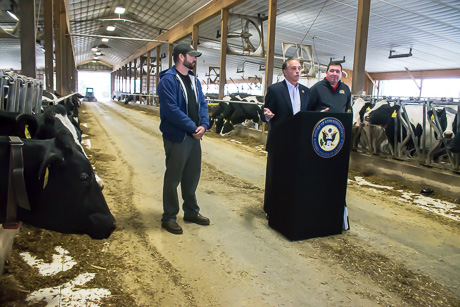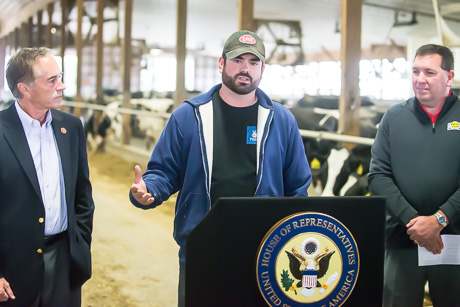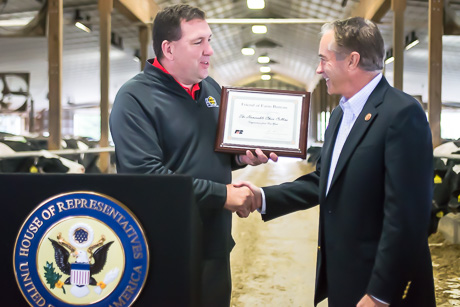Senators say new funding will modernize drinking water & sewer projects in NYS
Press release:
U.S. Senator Charles E. Schumer and U.S. Senator Kirsten Gillibrand today announced $220 million in Congressionally appropriated State Revolving Funds (SRFs) from the Environmental Protection Agency (EPA) for New York State that will revitalize water infrastructure projects to protect surface water and provide safe drinking water to Upstate communities.
The senators emphasized the necessity of the funding, which comes at a critical time for New York as the state recovers from the coronavirus (COVID-19) pandemic.
“New York has some of the oldest sewer systems in the country, and last year, nearly 200 waterways that provide drinking water in the state were found to contain contaminants flagged as dangerous by the EPA,” Senator Schumer said. “This federal funding will help address the hazard that aging water infrastructure presents to the health of thousands of New Yorkers.
"I will continue to fight tooth and nail to make sure that New York gets every dollar it needs to replace and repair every inch of waterway that will keep New Yorkers safe and healthy.”
“Access to clean water is a right, and New York’s communities deserve clean drinking water and wastewater systems they can trust,” Senator Gillibrand said. “This EPA funding is great news for the New York Clean Water and Drinking Water State Revolving Funds and will improve the quality of vital water infrastructure, enhance our water recycling system, and protect our state’s lakes and rivers.
"I will continue fighting for the resources needed to enhance public health and provide New Yorkers with access to safe and reliable water.”
Specifically, the Senators said, $175 million out of the total funding is being allocated toward the New York Clean Water State Revolving Fund (CWSRF) program, which provides low-interest loans and principle forgiveness for the improvement of water quality protection infrastructure projects that include modernizing wastewater infrastructure, implementing water reuse and recycling, and addressing stormwater.
Since its inception in 1990, the CWSRF, in conjunction with the New York Environmental Facilities Corporation (EFC) and NYS Department of Environmental Conservation, has provided $28.5 billion in low-cost financing.
Additionally, Schumer and Gillibrand added that $45 million out of the total funding is going toward the New York Drinking Water State Revolving Fund (DWSRF) program which provides low-interest loans and principal forgiveness for the construction of drinking water and infrastructure projects, and for the administration of small system technical assistance, source water protection, capacity development, and operator certification.
The DWSRF has provided $6.3 billion to assist public water systems across the state.
The federal funding allocated by the EPA will be distributed by New York State, which will contribute an additional 20 percent to match the federal grants.
The Senators have fought for years to secure sufficient funding for the CWSRF and DWSRF, fighting the Trump administration’s efforts to cut funding for the program by hundreds of millions of dollars. Most recently they secured $4 billion for the EPA’s State and Tribal Assistance Grants Program which provides money to the CWSRF and DWSRF, among other vital environmental programs.



